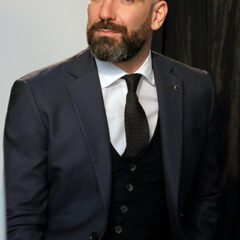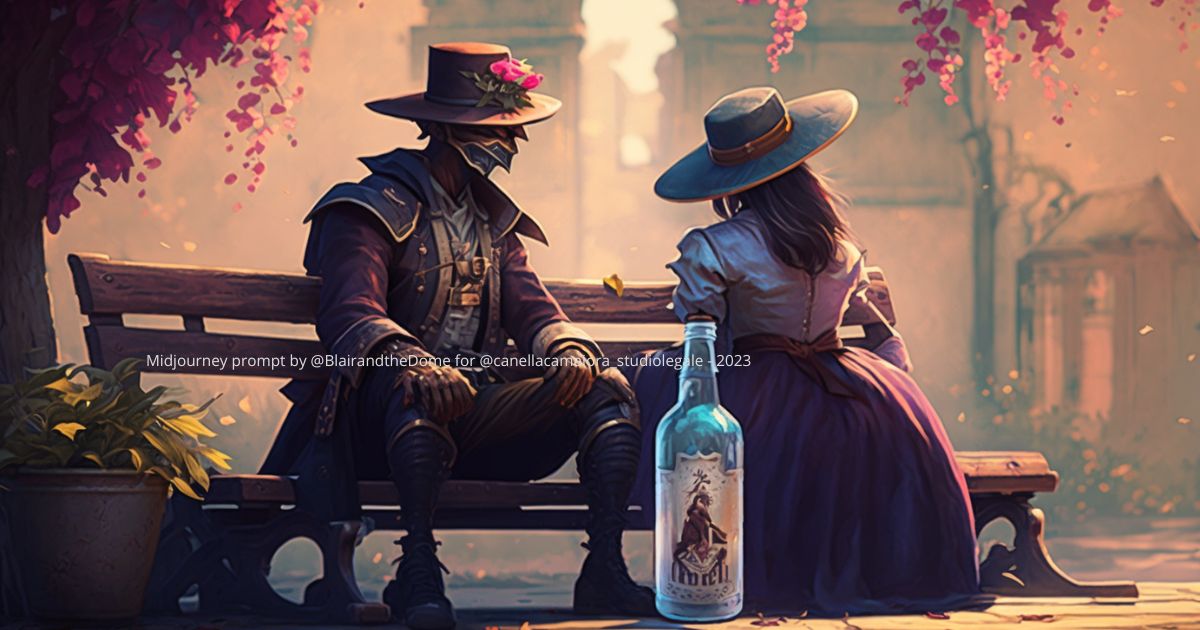After fifteen years of litigation and several levels of court, on Dec. 30, 2022, the Italian Supreme Court, in its Order No. 38165, set a number of major principles regarding freedom of parody and, most importantly, exceptions to certain intellectual property rights. In this article:
The case: the parody of Zorro in the Brio Blu commercial
Back in 2007, the American company Zorro Production Inc. had sued an Italian company for commissioning a television commercial in which a parody of the Zorro character appeared: the commercial ai issue was for Brio Blu water.
For the record, the contested commercial featured a Zorro fan who, dressed as Zorro, claimed to be equally passionate about both the famous character and Brio Blu mineral water.
Well, believing that the commercial was an infringement of its copyright and trademark rights, Zorro Production Inc. had taken legal action to have the illegality of the benefits gained from the unauthorized commercial exploitation of the legendary Zorro established.
The court case, through ups and downs, has now been going on for 15 years. Let’s take a look at the relevant laws and interpretative principles set by the Italian Supreme Court regarding parody.
Parody as freedom of expression
According to Article 21 of the Italian Constitution, “everyone has the right to express his or her thoughts freely…” and according to Article 33 Const. “Art and science are free and free is the teaching of them.”
Well, the right of criticism and discussion can be expressed in different ways, which parody certainly belongs with.
As a matter of fact, parody usually mocks the signature elements of an authorial work. When parody targets a literary character, its most prominent traits, such as physical features, attitudes or qualities, are usually mocked, with the clear intent of overthrowing the stereotypes that characterize it.
The limitation to the freedom of parody, however, is the speculative, economic and competitive use of the work that others may make of it. So let us see on precisely what terms.
The risk of competitive exploitation through parody
The copyright owner normally has the exclusive right to process the work (and this right under Article 18, c. 2 of Law 633/41 “includes all forms of modification, processing and transformation of the work”), but there are also several exceptions to this general principle.
European Directive No. 2001/29/EC expressly introduced some exceptions to copyright, including:
– when the use is for the purpose of caricature, parody or pastiche (Art. 5, c. 3(k));
– when quotations are made, e.g. for purposes of criticism or review, provided that the source is indicated and that the quotations are made in accordance with good custom (Art. 5, c. 3, letter d);
– and provided that exceptions are applied only in certain special cases that do not conflict with the normal exploitation of the work and do not unreasonably prejudice the legitimate interests of the owner (Art. 5, c. 5).
These criteria for exceptions to copyright seem to be substantially consistent with those proposed by Art. 70 of our Italian Copyright Law.
Article 70 of the Italian Copyright Law (L. 633 of 1941) is located within Chapter V entitled “exceptions and limitations.” The first paragraph of Article 70 expressly states: “The summary, quotation or reproduction of passages or parts of works and their communication to the public are free if carried out for the use of criticism or discussion, within the limits justified by these purposes and provided that they do not constitute competition with the economic use of the work…”
In the context of an economic activity, for instance, one cannot “mock” famous trademarks owned by others because such use would enable the operator to gain an illegitimate advantage. This advantage, precisely consists in the attachment to the reputation of the famous trademark and, when it comes to parody, such attachment or appeal is always structural and consequently unavoidable.
Is it legitimate to parody a famous trademark?
When it comes to trademarks, it does not seem relevant whether the trader actually uses the parodied trademark to distinguish his products or not.
As far as famous trademarks are concerned, through the mere mention of it, the user always ends up taking unfair advantage of the trademark’s reputation.
With the ruling under comment (Ord. 30/12/2022, no. 38165), the Italian Supreme Court stated in this regard a rather clear legal principle: “on the subject of trademarks [… ] the exploitation of someone else’s trademark, if notorious, is to be considered prohibited where the use of the sign without due cause, put in place in the economic activity, allows to take unfair advantage of the distinctive character or renown of the trademark or is detrimental to the same, regardless of whether the trademark is not used to distinguish the goods or services of the author of the use, as may be the case with the parody representation of the trademark in question“.
When does copyright prohibit parody?
While parody is essentially a “mockery”, it is only juridically legitimate when it represents the outcome of the citizen’s freedom of expression. The right to parody must always be balanced against the economic interest of the owner of the original work.
As a matter of fact, parody cannot be expected to be legitimate when it goes beyond the humorous purpose, for instance, by entering into direct competition with the parodied work and damaging the exclusive exploitation right belonging to the copyright owner.
In this regard, the Italian Supreme Court has clarified that: “on the subject of copyright, parody must respect a fair balance between the rights of the person entitled to the exploitation of the work, or character, and the freedom of expression of the author of the parody itself; in this sense, the resumption of protected content can be justified within the limits inherent in the parodistic purpose and provided that the parody does not harm the interests of the owner of the original work or character, as happens when it enters into competition with the economic use of the same” (Ord. 30/12/2022, no. 38165).
Although the interpretative principle has been established, the case cannot be considered closed. It has been referred again to the Rome Court of Appeals in order for the aforementioned principles to be applied and to finally reach a final decision.
Still, those who operate in the creative, artistic or advertising field should definitely know what the legal limits are to the parodistic use of other people’s characters, literary works or famous trademarks, so as to avoid the risk of pushing too far and then being condemned to pay damages.
© Canella Camaiora S.t.A. S.r.l. - All rights reserved.
Publication date: 3 February 2023
Last update: 7 May 2025
Textual reproduction of the article is permitted, even for commercial purposes, within the limit of 15% of its entirety, provided that the source is clearly indicated. In the case of online reproduction, a link to the original article must be included. Unauthorised reproduction or paraphrasing without indication of source will be prosecuted.

Arlo Canella
Managing Partner of the Canella Camaiora Law Firm, member of the Milan Bar Association, passionate about Branding, Communication and Design.
